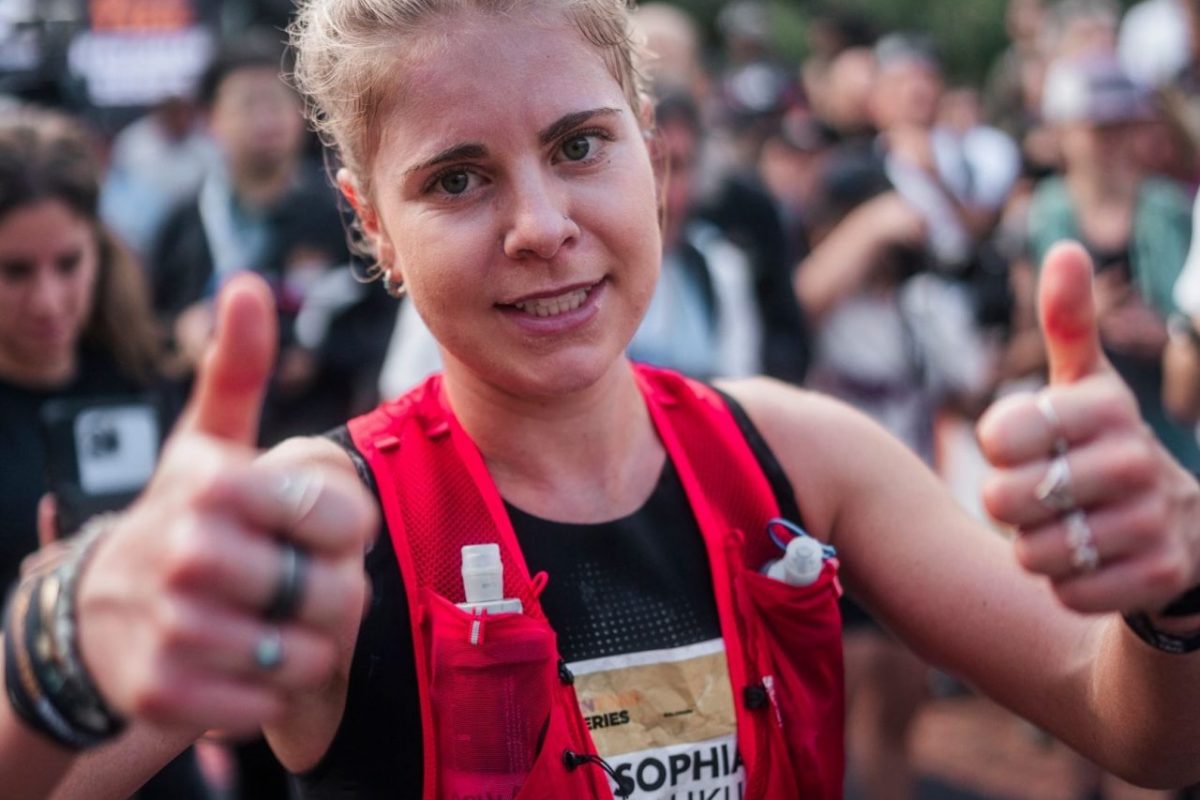
OSLO, Norway– There have been a lot of strange things about the World Cup races so far at Holmenkollen: snow, wind, penalties on the range.
But hands-down the most bizarre was on the last loop of today’s 10 k women’s pursuit, when Russian head coach Vladimir Korolkevich ran into Canada’s Rosanna Crawford, sending her sprawling across the ski trail.
“He was cheering a girl on the other side of the course on the two-way spot, and I started yelling at him because he was right in my way,” Crawford told FasterSkier. “I went to go around him and he stepped out, and we smashed into each other. My sunglasses and headband went flying off and I landed right on my back on my rifle. I landed on my sprained thumb again. And then a lot of people caught me on my last loop. My legs were so fried.”
Crawford finished 19th, but before the race was even over, the Canadians filed a protest.
“I was here at the range, but our wax tech saw it and so did a few other coaches,” head coach Matthias Ahrens said. “She yelled, but he made the move towards her and stepped between her skis. He made her crash, she fell back on her rifle. Her hat and glasses flew off. It took time of course to get up. Her momentum was gone and she was a bit under shock. Lactic acid, adrenaline and so on. Unfortunately that happened. She was in 13th place at that point, pretty much on her own. And then six other athletes passed her.”
At the finish, Crawford was angry about the incident and also worried that it would cost her a spot in the 30-woman mass start competition on Sunday – 13th place versus 19th could make the difference in the points standings.
“That was the main concern and the main reason that we did the protest,” Ahrens said.
The jury decided to deduct 14.1 seconds from Crawford’s time, based on splits from intermediate checkpoints before and after the spot where the incident happened. They calculated that she had lost roughly 14 seconds during the crash and in getting up. That left her in 17th place, in a tie with a Swedish athlete.
“I think that was a fair way to deal with it,” Ahrens said.
But it didn’t make up for the time she lost on the final loop due to her concentration being completely disrupted, the aggravated thumb injury, and other factors.
“Even though I was only on the ground for 15 seconds I lost about another 30 seconds in ski speed, loosing about 45 seconds on that last loop,” Crawford wrote in an e-mail later in the afternoon.
“Obviously it doesn’t make up for all the other stuff involved, but for her being a bit under the shock and losing momentum and maybe motivation too to sprint at the end, or whatever,” Ahrens agreed, noting however that it would be impossible for a jury to predict where she would have placed in a sprint finish further up the field.
The 17th-place points were enough to qualify Crawford for the mass start, calming some of her fears.
The incident was nearly unprecedented in World Cup memory.
“I’ve, well, actually, yes,” Ahrens said, thinking over whether he could remember another coach-athlete collision. “It happens. But, you know, it should not. What are they doing out on course?”
That is a valid question, made all the more strange by the fact that Korolkevich is a veteran coach who has led several national teams. He has recently come under fire because two of the athletes in his training group, Ekaterina Iourieva and Irina Starykh, tested positive for erythropoietin (EPO). He was nonetheless promoted to head coach of the Russian women’s team.
Besides the time adjustment, additional sanctions have been placed against Korolkevich.
“The access to the course is being pulled, and there is also a penalty of 500 Euro for the association,” Ahrens said. “For sure the measurement that his access is pulled, it’s a good measurement. The money, I mean…”
Max Cobb, the president of the U.S. Biathlon Association who is working as the IBU Technical Delegate this weekend, confirmed that there were no guidelines or precedent for the jury to follow as they decided how to rectify the situation.
“I’m happy to see that the jury acknowledged that an unfair situation occurred and that an attempt was made to remedy the situation,” Biathlon Canada High Performance Director Chris Lindsay wrote in an e-mail. “No one wants to see unfair situations occur and we hope that this is a reminder that everyone needs to be vigilant to ensure that the field of play is level and equal for all athletes.”
Crawford’s Canadian teammate Zina Kocher finished 16th for the second competition in a row, and also qualified for the mass start.
Chelsea Little
Chelsea Little is FasterSkier's Editor-At-Large. A former racer at Ford Sayre, Dartmouth College and the Craftsbury Green Racing Project, she is a PhD candidate in aquatic ecology in the @Altermatt_lab at Eawag, the Swiss Federal Institute of Aquatic Science and Technology in Zurich, Switzerland. You can follow her on twitter @ChelskiLittle.




One comment
John Forrest Tomlinson
March 22, 2014 at 5:00 pm
“He was nonetheless promoted to head coach of the Russian women’s team.”
Not sure the word “nonetheless” is quite right in this sentence. I think it “therefore” would be more accurate.